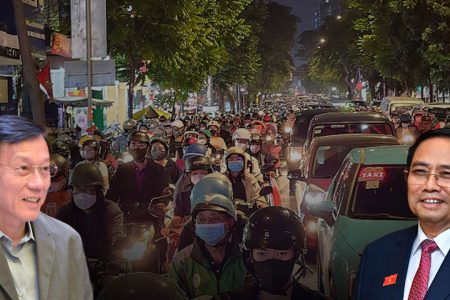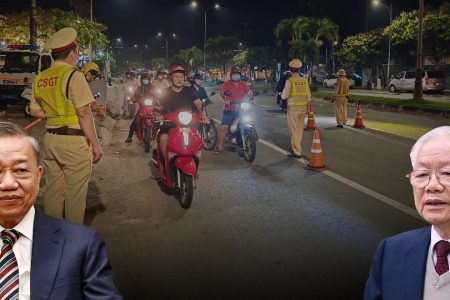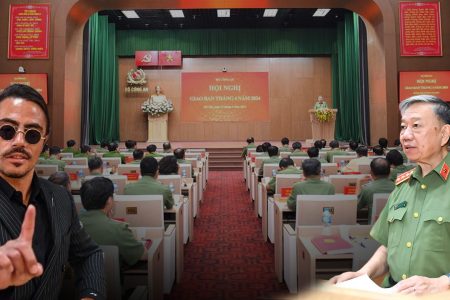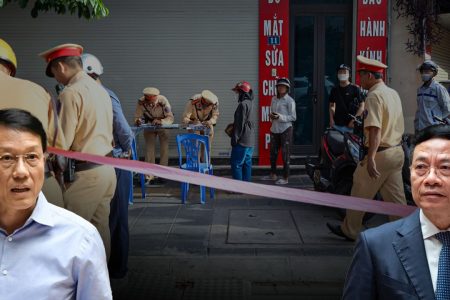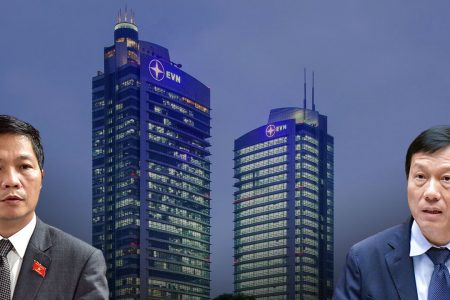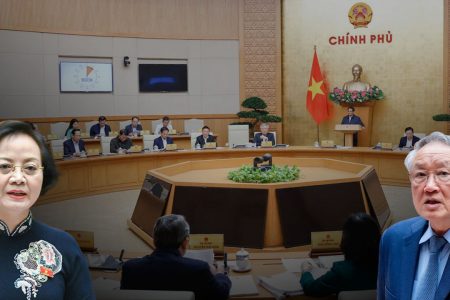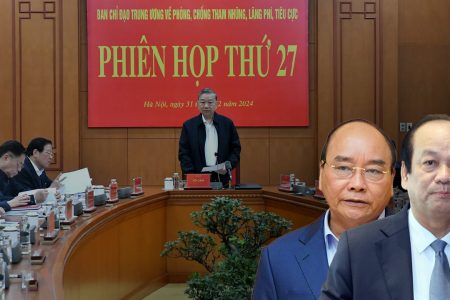
New Vietnamese Foreign Minister Bui Thanh Son has just had a phone call with his Chinese counterpart Vuong Nghi, in which the two sides affirmed to maintain comprehensive strategic cooperation as well as held the “straightforward” exchange on maritime issues.
During a telephone discussion on April 16 recorded by the domestic media, Mr. Son, who recently replaced Pham Binh Minh as Foreign Minister, introduced Vietnam’s foreign policy adopted during the 13th National Congress of the ruling Communist Party of Vietnam which said Vietnam “continues to consistently implement the foreign policy of independence, peace autonomy, cooperation and development, multilateralization, diversification, and comprehensive and extensive international integration.”
Mr. Son, who served as Deputy Minister of Foreign Affairs while Deputy Prime Minister Minh concurrently held the position of minister, also affirmed with his counterparts about the preservation and development of a comprehensive strategic cooperation partnership between two countries. Outside of China, only Russia and India have comprehensive strategic cooperation with Vietnam, the highest level in the Southeast Asian nation’s relations with foreign partners.
Mr. Son was quoted by VOV as telling Wang Yi that “Vietnam always considers China as one of the top priorities in Vietnam’s foreign policy.”
In response, Foreign Minister Wang told Mr. Son that China and Vietnam are “friendly neighbors and important partners for each other” and that both countries “are attached to the leadership of the Communist Party as well like their socialist pathway,” according to the Chinese state’s global media network CGTN.
Still, according to CGTN, Mr. Wang told Mr. Son that as a “comrade and brother,” China will continue to strongly support Vietnam on the path of socialism for a better future. According to the Foreign Minister of China, the two countries belong to “a common community that has strategic significance in the future.”
Even so, diplomatic relations between Vietnam and China in recent years have fallen to their lowest level as Beijing increases its maritime sovereignty expansion activities, prompting Hanoi to repeatedly accuse the northern giant country of “infringing its sovereignty of territorial waters.”
Since the fact that China put Hai Duong 981 drilling rig into Vietnam’s exclusive economic zone in 2014, Hanoi has repeatedly accused Beijing of violating its sovereignty over the sea such as bringing exploration ships near Vanguard Bank, sinking fishing boats of Quang Ngai fishermen, or establishing the administrative city of Sansha to control the archipelagos that Vietnam has claimed. Last April, Vietnam had to submit a diplomatic note to the UN to protest China’s arguments on the South China Sea.
During the conversation between the two foreign ministers of Vietnam and China on April 16, the two sides “exchanged sincerely and frankly on the issue at sea” at the same time “agreed to continue promoting the role of the current negotiation mechanism,” according to Tuoi Tre.
Mr. Son did not specify what the South China Sea issues he discussed with his Chinese counterpart, but Tuoi Tre reported information from the Ministry of Foreign Affairs, Vietnam’s new foreign minister during a phone call with the Chinese foreign minister “proposed the two sides exchange and resolve disagreements in the spirit of respect for each other’s legitimate rights and interests, mutual agreement and understanding between the two sides and international law, including the UN Convention on Law of the Sea (UNCLOS) 1982, together with ASEAN make positive progress on the Code of Conduct in the South China Sea (COC).”
Mr. Son was quoted by CGTN as telling Mr. Wang that Vietnam is ready to strengthen cooperation with China in many fields, including maritime to “keep peace and stability” at sea.
Thoibao.de (Translated)







